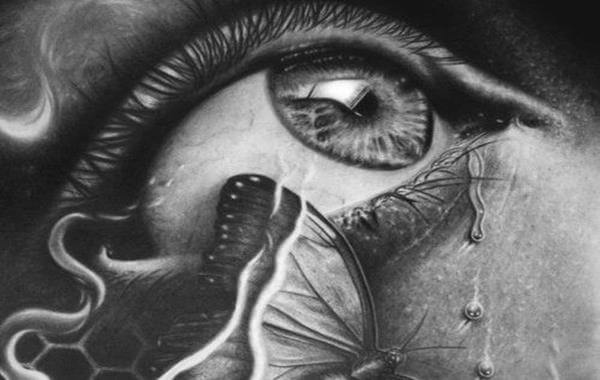"If You Love, You Suffer. If You Do Not Love, You Get Sick"

The phrase “If you love, you suffer. If do not love you get sick,” is one of the most popular of Sigmund Freud. It is included in his “Introduction to Narcissism” and now we see it circulating on all social networks. Many think his phrase is romantic, but the truth is it’s much more than that.
Sigmund Freud and psychoanalysis have been called into question countless times. The most frequent criticism is that it’s “non-scientific.” Still, many of Freud’s theories have influenced all human sciences, including “hard” disciplines such as psychiatry.
“Anyone who falls from good fortune cares little about the depth of the abyss.”
-Lord Byron-
In any event, the truth is that few dispute the importance of love in human development. From the moment we open our eyes to the world we suffer from a deficiency: the lack of another person. There is no way to survive or grow if that other person isn’t there to make it possible.
This, in other words, means that if there isn’t even a minimum of love at the beginning of our life, this becomes impossible. Someone has to cater to our needs, otherwise we die.
The human being is always and forever, a needy being. Lacking. It inhabits a void impossible to fill, even though we sometimes believe it is not. This is because we are forever and always doomed to a hopeless solitude. As much as we manage to establish intimate and loving ties, the reality is that we are born, live and die alone essentially.
If you love, you suffer
In love, multiple forms of suffering come into play ranging from loving and not being loved, to discovering that love does not solve everything. By one way or the other, there is no way to love without suffering. Why must it be like this? Why doesn’t love lead to happiness and nothing more? Isn’t it a “masochistic” way of thinking?

Infatuation is obsessive, but, at the same time, it gives us a sense of aliveness that is hard to achieve through other experiences. Infatuation is atrocious and, at the same time delicious. It is very well represented in “Love in the Time of Cholera”, where it is stated that “the symptoms of love are very similar to those of cholera”.
Yes. Falling in love is suffering with pleasure. Suffering when you aren’t near the other person, and you feel like you’re going to die when you suspect that everything may end. Knowing you’d do anything to be in the company of that person who stole your heart. The emotion of loving alternates with the fear of losing the one you love. Enthusiasm coupled with insidious doubts.
Once this vibrant phase of infatuation is finished, you experience a kind of duel at the beginning. “Something” is gone, “something” is not like it was before. You know you still love that person, but also that this love has limits. Then you suffer because you have to say goodbye to the illusion of that romantic and eternal love.
If you do not love, you get sick
When a person has difficulty establishing bonds of love with others, they become very vulnerable, emotionally and mentally. The secrecy, obsessive isolation, the difficulty communicating with others what one feels or thinks, are signs that things are not going well.

The self gets sick. If only that which has to do with oneself is important and there are great difficulties in recognizing what affects others, there is every reason to believe that the person is trapped in his or her own narcissism. But it is not a moral or ethically reprehensible matter. It is a rather disturbing signal, which indicates the person has become ill or is going to get sick.
We all have stages when we are reluctant to contact others or phases where we need to be alone with ourselves. But when it becomes a relatively permanent pattern, there are problems. There is a strong feeling of detachment towards life and an inclination towards everything that represents death.
It is as if one becomes sick of oneself. This excessive focus on the self, sooner or later, results in anxiety, in obsession. It also results in a very unproductive life and with very little meaning. Or we treat others like instruments; things that serve our purposes. Under these conditions, they move us further and further away from the possibility of reaching something we all search seek: achieving inner peace.

Reciprocity, One of The Foundations of Our Relationships
Reciprocity that is well understood is not measuring what we give or expect to receive to the same extent. Find out what it is and how to enjoy … See more »
This text is provided for informational purposes only and does not replace consultation with a professional. If in doubt, consult your specialist.








